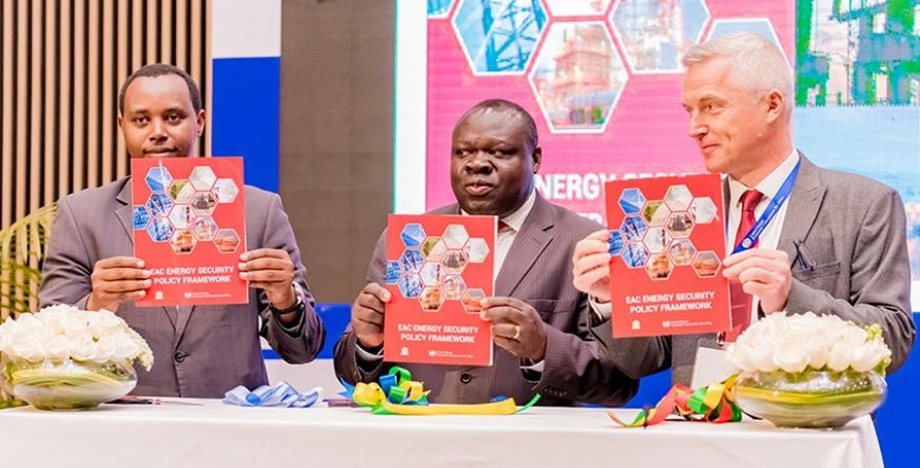Kigali, 21 November 2018: The East African Community (EAC) has officially launched an energy security policy framework aiming at reducing electricity costs and ensure reliable supply.
The policy framework, developed in partnership with the United Nations Economic Commission for Africa, was announced at the ongoing three-day meeting of the Intergovernmental Committee of Experts (ICE) in Kigali. The meeting is focusing on the implementation of the African Continental Free Trade Area (AfCFTA).
The policy framework, officials said, will contribute towards the development of the energy infrastructure, which critically needed to drive intraregional trade.
Hon. Christophe Bazivamo, the EAC’s Deputy Secretary General in charge of Finance and Administration, said: “Without affordable and security energy supply, we face hurdles of industrial development, and growing dependence on imported energy undermines our balance of payments, and macroeconomic performance”, adding that “Without energy, there will be no industrialisation.”
Yohannes Hailu, the ECA Economic Affairs Officer, said: “The policy provides guidance to member States on the measurement, monitoring and management of energy security in the biomass, electricity and oil and gas sub-sectors.” Hailu added that; “This is a crucial step towards guiding energy systems in Africa towards resilience and greater security.”
The EAC is grappling with high energy costs as well as unstable electricity supply to light homes and power the region’s growing industrial sector.
Studies by Economic Commission for Africa show that the lack of secure electricity supply lowers the pace at which the region is growing by 2 to 5 per cent of GDP. The heavy dependency on fossil fuels and the lack of the oil refinery infrastructure has driven petroleum imports to over 10 per cent of GDP in the East African region. About 90 per cent of EAC population relies on biomass (charcoal and firewood) for energy sources, which leads to a massive deforestation and creates long-term risks to the security and sustainability of the energy supply, according to officials.
The EAC policy framework is also seen as a catalyst to achieving the Sustainable Development Goal 7 on universal access on clean, affordable, sustainable and reliable energy.

 ENGL
ENGL KINY
KINY